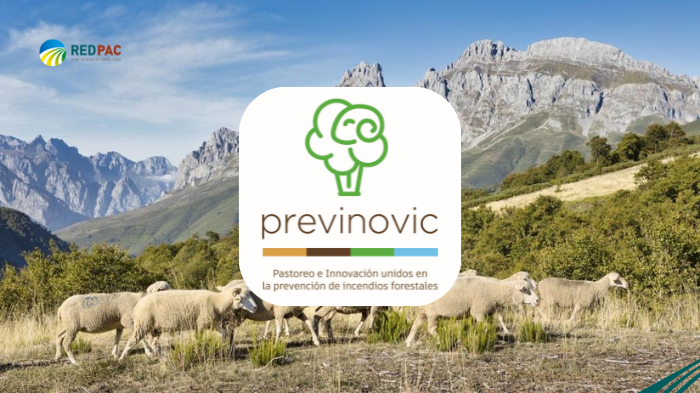
01 de April de 2025
Innovación
Cambio climático y gestión de recursos naturales
The Previnovic Operational Group is evaluating the effectiveness of small ruminant grazing to reduce biomass in forests through surveys and pilot projects.
- The Previnovic Operational Group is evaluating the effectiveness of small ruminant grazing to reduce biomass in forests through surveys and pilot projects.
- The project involves industry professionals and uses new livestock monitoring technologies.
Fire prevention in the Mediterranean has traditionally been achieved through the maintenance of firebreaks—linear structures that break the continuity of vegetation to slow the spread of fire—which are expensive to maintain and are carried out mechanically. In recent decades, attempts have been made to introduce extensive livestock farming to help clear shrubby areas in forested areas and thus reduce the risk of fires.
In this context, the Previnovic Operational Group (OG) was created , whose main objective is to promote the use of extensive sheep and goat farming for fire prevention in Spanish ecosystems, through interaction between professionals and the use of new technologies.
Tomás Rodríguez, director of Interovic, indicates that this project "provides valuable information on pastoralism as an ecosystem service in rural areas, using the professionals involved as a source."
Goals
This GO seeks to evaluate the effectiveness of small ruminants in reducing biomass and, to this end, has proposed the following objectives.
- Analyze success and failure cases .
- To characterize the participating farms, including their costs and benefits, as well as farmers' preferences for innovative grazing schemes for fire prevention.
- To evaluate the clearing capacity and natural biomass reduction of small ruminants in different environments and with different management strategies.
- Evaluate the implementation of animal geolocation technologies.
Activities and progress
The Previnovic GO began its activities in September 2024. In these months, "the bulk of the work has fallen on the University of Zaragoza, which has carried out the initial activities related to the study of the schemes and projects of recent years," explains Rodríguez.
Overall, the GO has implemented the following actions.
- Compilation of studies, programs, success and failure cases, and statistical information on the activity.
- Design and development of surveys to raise awareness among stakeholders, demonstrate livestock farmers' needs and social perceptions, and analyze complementary grazing systems.
- Design of pilot projects in different ecosystems on the Iberian Peninsula. "Some of them have already taken the first steps, and others will begin in the coming months, depending on seasonal conditions and grazing periods," the GOA reports. This information "will be integrated into a report, and we will use it to create a reference guide."
Participants and funding
The Previnovic Operational Group is coordinated by the Interprofessional Agri-Food Organization of Sheep and Goats (INTEROVIC) and is joined by:
- AGROVIDAR Agroenvironmental Solutions SLU
- Corsevilla – Andalusian Cooperative Society
- EA Group SC – Cooperative Society
- Oviaragon – Cooperative Society
- OVICA – Association of Sheep and Goat Breeders of Galicia.
- University of Zaragoza
In addition, the supra-regional project is funded with €593,715 from the European Agricultural Fund for Rural Development (EAFRD) and the Ministry of Agriculture, Fisheries and Food through Spain's 2023-2027 CAP Strategic Plan (PEPAC).









